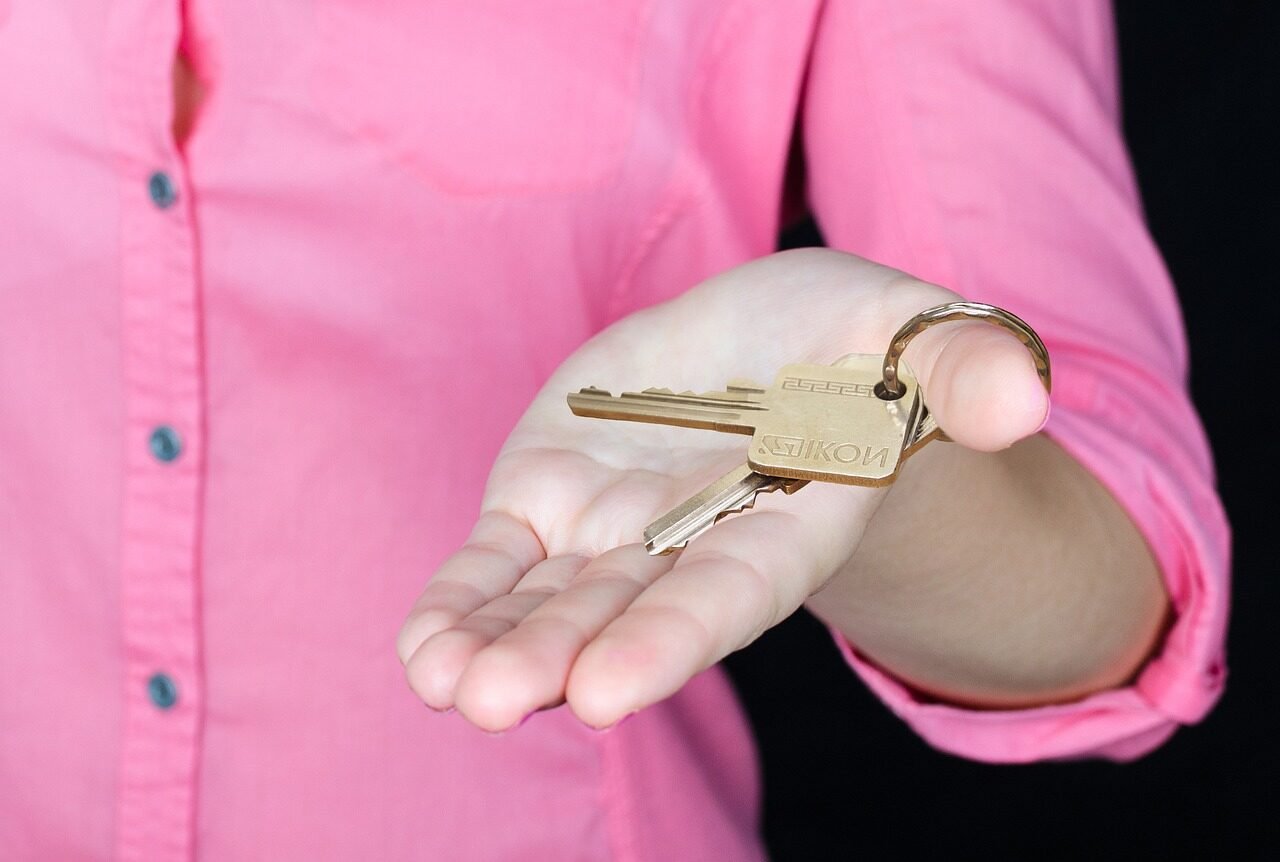The implied warranty of habitability is a crucial legal concept that every tenant and landlord should understand.
What is the implied warranty of habitability?
So, you’re renting a place and stumble upon the term implied warranty of habitability? Let’s dive in. Think of it as a silent promise that your apartment isn’t just a roof over your head but a safe and decent place to live. Essentially, this warranty means that by law, your landlord has gotta keep your crib up to a certain standard, where things like the faucet work and you’re not living in a scene out of a horror movie with damage and creepy crawlies. It’s all about making sure the place is livable and doesn’t have serious issues like code violations.
This warranty is super important because it’s applicable to most residential leases, giving tenants—yeah, that’s you—a bunch of rights. If your landlord decides to play it cool and ignore a leaking roof or a busted heater, that could be considered a breach of the warranty. In that scenario, you as a renter might have some legal muscle to flex, like withholding a chunk of the amount of rent or even breaking your lease under certain conditions, depending on where you live. Now, before you go thinking you can withhold rent for a broken faucet, keep in mind what’s considered “livable” can depend on your state or city’s specific laws.
Just a heads up, though: this little article shouldn’t be construed as legal advice. Each situation is unique, and the laws around tenant rights, what’s permissible, and what landlords must do to keep premises habitable can vary big time. If you’re dealing with a real doozy of a situation, reaching out to a legal expert or a tenant’s rights organization might be your best bet. Remember, understanding your rights is key, and your peace of mind and safety should always be a priority when it comes to real estate and where you call home.
Understanding the legal definition of implied warranty of habitability
The implied warranty of habitability is a legal doctrine that requires landlords to ensure rental premises are fit for human habitation.
How the implied warranty of habitability affects tenants and landlords

This warranty protects tenants’ rights to live in a habitable rental unit and obligates landlords to maintain the premises in a livable condition.
The legal requirements for rental properties under this warranty
Rental units must have basic amenities like hot water, sewage disposal, and comply with building codes and regulations for habitability.
Responsibilities of landlords under the implied warranty of habitability
So, ever heard about the implied warranty of habitability? It’s kinda like a promise that landlords make without even saying it out loud. Essentially, it means landlords gotta ensure their rental spaces are livable, safe, and won’t cause the tenants to run off screaming. It’s not just a nice gesture—it’s legally binding!
What this means is, when landlords collect that rent check from you, they’ve got some responsibilities. We’re not just talking about fixing a leaky faucet (though, yes, that too). It’s bigger stuff, like making sure the place doesn’t become a winter wonderland inside because the heating’s busted or ensuring the roof isn’t about to make a grand entrance into your living room. They gotta make sure everything’s up to code and safe to live in.
So, in a nutshell, the implied warranty of habitability obliges landlords to make sure your pad isn’t just standing; it’s got to be properly habitable. And if they don’t hold up their end of the deal, there are legal routes you can take. Safe to say, it’s a big deal and one of the must-knows for tenants!
Maintenance and repair obligations to keep the property habitable
Landlords must make repairs and address any defects that make the rental unit unfit for human habitation within a reasonable time.
Determining what constitutes a breach of this warranty
A breach of the implied warranty occurs when the rental premises lack basic amenities or violate housing codes, rendering it unlivable.
Legal consequences for landlords failing to meet these obligations

Landlords who breach the warranty may face legal penalties, tenant lawsuits, and potential eviction for substantial non-compliance.
Tenant’s rights and remedies for violation of the implied warranty
Steps a tenant can take when their rental is deemed uninhabitable
Tenants can notify the landlord of the issue, withhold rent until repairs are made, or terminate the lease in severe cases.
Withholding rent and the concept of “repair and deduct”
In some jurisdictions, tenants may be able to “repair and deduct” the cost of necessary repairs from their monthly rent.
Legal recourse and seeking attorney assistance
If landlords don’t address the issue, tenants can pursue legal options, including lawsuits and consulting an attorney.
How legal jurisdictions affect the implied warranty of habitability
Okay, so when you move into a new place, there’s this thing you may not have heard of called the implied warranty of habitability. Basically, it means your pad’s gotta be fit to live in – you know, no leaks, working heat, that sort of thing. Now, here’s where it gets interesting: the rules around this warranty aren’t the same everywhere. Yup, depending on where you live, legal jurisdictions can tweak what “habitable” really means.
In some places, the implied warranty of habitability covers a lot. We’re talking about having proper locks on your doors for safety, or making sure your place isn’t a playground for pests. But move a few states over, and you’ll find the requirements can be as minimal as just having running water and electricity. It’s all about where you’re at, and sometimes, that can be pretty wild to think about. Knowing your local laws can be a total game-changer in making sure your home is up to snuff.
Variations in local housing codes and their impacts
Housing codes that define habitability standards vary across cities and counties, impacting the legal issue of habitability.
The role of state laws and court decisions regarding habitability

State laws and court rulings also shape the interpretation and enforcement of the implied warranty of habitability.
Understanding jurisdiction-specific tenant protections
Tenants should familiarize themselves with local laws and legal protections regarding the implied warranty in their area.
Preventive measures to avoid disputes over habitability
So, when it comes to renting a place, the last thing anyone wants is a bunch of squabbles over whether or not the place is liveable. That’s where this fancy notion of the implied warranty of habitability comes into play. It’s basically a legal way of saying that your rental should be fit to live in – think running water, no rats running marathons in the ceiling, and an actual heating system for those chilly nights.
To keep drama at bay and steer clear of any disputes with your landlord, it’s super important to be proactive. Before signing that lease, do a thorough walk-through. Snap photos of any problems so you have a visual log, because let’s be real, memory can be as unreliable as my old car. Make sure any promises to fix issues are written into the lease – because if it’s not in writing, did it even happen?
Keep communication with your landlord open and courteous. If something breaks or goes sideways, let them know ASAP. It’s way better to deal with a leaky faucet immediately than to wait until you’ve got an indoor pool you didn’t ask for. Remember, the goal is to avoid falling into a pit of despair (and potential legal battles) over the implied warranty of habitability. Keeping things chill, documenting everything, and staying on top of communication can make your renting experience a whole lot smoother.
For landlords: Ensuring compliance with housing codes and standards
Landlords should regularly inspect and maintain their properties to ensure substantial compliance with habitability standards.
For tenants: Knowing your rights and when to seek legal advice
Tenants should understand their rights under the implied warranty and seek legal advice if issues persist.
The importance of thorough lease agreements and regular inspections
Clear lease agreements and routine inspections can help prevent disputes by setting expectations and addressing issues early.
Seeking legal advice regarding the implied warranty of habitability
When to consult with a landlord-tenant attorney
Consulting an attorney is advisable when facing significant habitability issues, potential lawsuits, or complex legal situations.
How legal representation can help you avoid or resolve disputes
Attorneys can help navigate legal procedures, protect your rights, and facilitate dispute resolution regarding habitability.
The benefits of obtaining professional legal advice early
Early legal advice can help prevent escalation of disputes and ensure compliance with landlord-tenant laws.
FAQs
What is a breach of implied warranty of habitability in California?
In California, a breach occurs when a rental unit lacks essential amenities like hot water, heating, or violates housing codes.
What is the implied warranty of habitability in Texas?
Texas recognizes the implied warranty, requiring landlords to maintain rental premises in a habitable condition.
What is an implied warranty of merchantability?
This warranty applies to goods sold and requires them to be fit for their intended purpose, unlike habitability for rental units.
What is the implied warranty of habitability in Florida?
Florida law establishes the implied warranty, with specific requirements for essential services and building codes.


